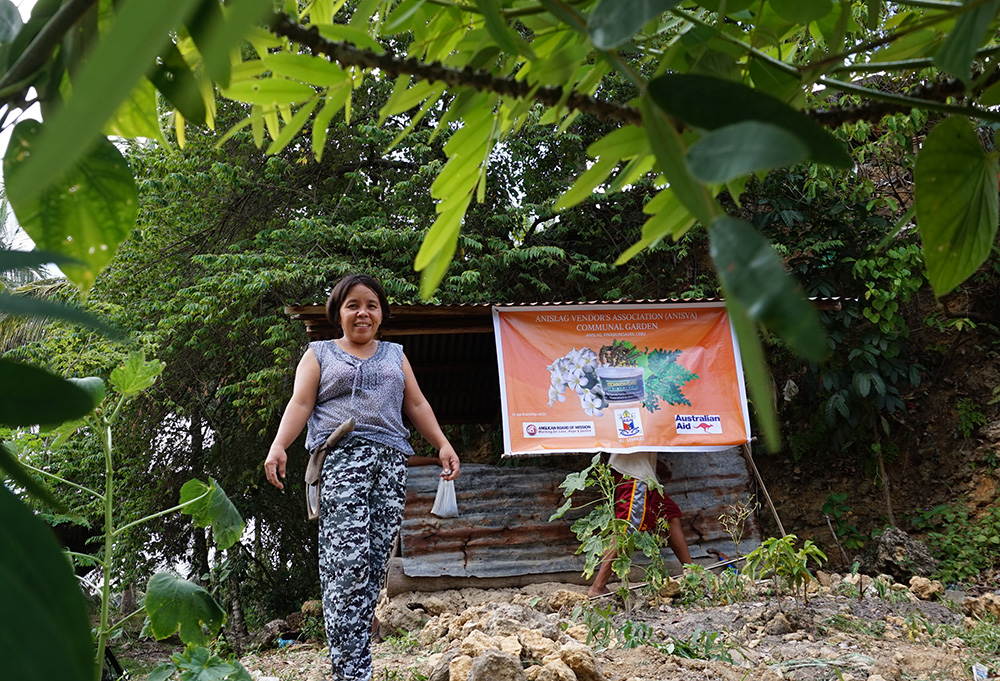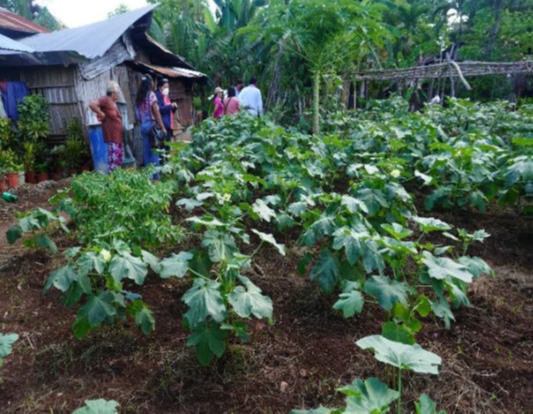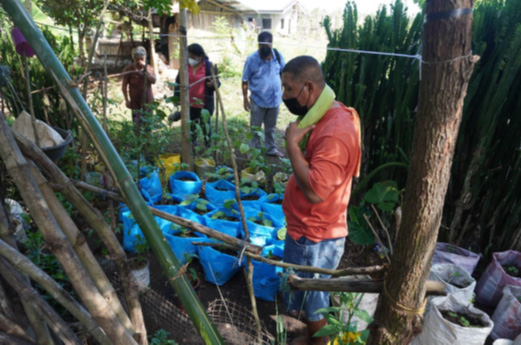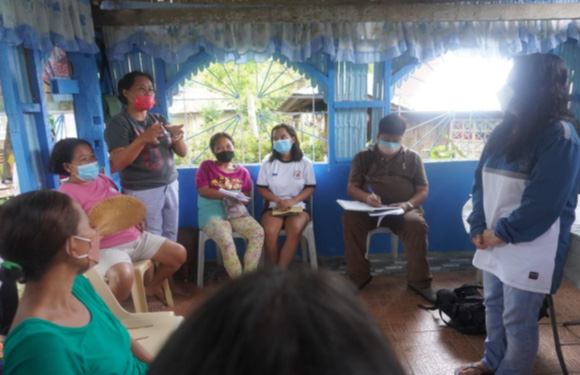Long terms gains made in Philippines project in spite of COVID-19
Philippines’ project leads to long-term gains for many community groups, in spite of COVID-19
“The group’s vegetable production has enabled the members to endure the household food security challenges brought about by the COVID-19 pandemic since early 2020”, said Yolanda Balud. “And there are now ten members of the association who are selling their surplus vegetables at Pinamungajan market centre at least once a week. These members each earn an average of 300 pesos (about $7.75) per day”.
Yolanda is the elected chairperson of ANISVA, a Vendors Association established through ABM-AID’s Asset-based Community Development (ABCD) project in Anislag community in Cebu Province, the Philippines. The project is implemented by AID’s partner, IFI-VIMROD.
Yolanda said that VIMROD began by helping the new association with business planning and sustainable agriculture practices. The association then used their new skills to establish both communal and individual gardens that allowed them each to save 40-50 pesos per day (about $1-1.30) on the vegetables their household consumed.
Now, three years after IFI-VIMROD moved on to support other communities, the ANISVA association continues to conduct monthly meetings to discuss membership, funds, and projects.
Another success story comes from the youths in other farming communities of Pinamungajan in Cebu Province, to whom IFI-VIMROD introduced the Asset-Based Community Development (ABCD) concept in June 2019. Among the participants were some youths who were inspired to establish their own organization: Bulongan-Camugao Youth Organization (BYCO). BYCO’s members all came from poor farming families. Three were school drop-outs and two were persons with disabilities.
The youths were initially motivated to organize themselves just for self-development and friendship. However, as they participated in trainings and organizational activities led by IFI-VIMROD, they were inspired to start a joint business: a small convenience store. They found a suitable place and then negotiated a written agreement with the landowner. They also collected bamboo for making the wall.
But they needed money to buy nails and roof materials. It was then that they decided to harvest water spinach (Ipomea aquatica) growing in a swamp in a public area in the community and sell them. From days spent wading through the murky water of the swamp, the youths soon gathered enough water spinach to earn 2,000 pesos (about $52). They used 1,500 pesos to buy the materials needed to build the store and retained 500 pesos as capital to sell banana cue (skewered fried banana) and shakoy (twisted doughnut pastries). They also continued harvesting and selling water spinach to build up capital and run the store profitably.
As the COVID-19 pandemic struck in 2020, business decreased and gatherings of BCYO came to a halt. At the first opportunity, however, BCYO members combined with another community-based organisation to establish a demonstration farm for organic vegetable production. All members of the two organizations worked together to set up a compost pit, collect biodegradable materials and take turns in cultivating the land. They grew lady finger bananas, eggplants, string beans, lemon grass, pak choi, cucumbers, peanuts, tomatoes, watermelons and papaya. They also pioneered the practice of the Baboy na Walang Amoy system (Odorless Pig Raising) in the village. They constructed a pig pen using wood, bamboo and coconut leaves and laid down newly milled rice hulls, sawdust or other organic materials as beddings for the pigs. BCYO also participated in church-led tree-planting activities.
In March 2021, IFI-VIMROD’s ABCD project provided a PhP50,000 small project grant to BCYO. They were able to revive their basic commodities retail store and add an “e-load” service (prepaid mobile phone reloading station). They have also recently given a share of the profits from the store to each member.
However, they gained more than just the income from their enterprises. They learned values of persistence, leadership, self-confidence, patience, cooperation, accountability, and hard work.
AID congratulates the communities and IFI-VIMROD for their hard work and persistence which have led to these successes.
We also acknowledge the support of the Australian government through the ANCP program.

ANISVA’s elected chair, Yoland Balud, in the group’s herbal garden. © IFI-VIMROD. Used with permission.

The project has led to an increase in food production among the participants. © IFI-VIMROD. Used with permission.

A plant nursery created by project participants. © IFI-VIMROD. Used with permission.
